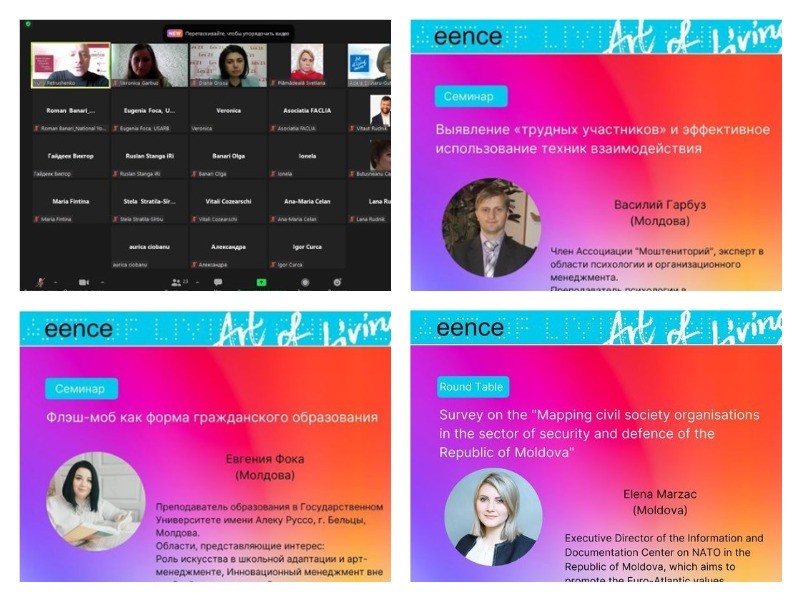Day 5 of Citizenship Education Week: Moldova
On the 5th day of the Citizenship Education Week, 13 activities were organized and carried out by organizations and experts from Moldova, Ukraine, Azerbaijan and Georgia. The format of the activities was very diverse: panel discussions, presentation of the results of the studies, round tables, seminars and workshops. Some activities were carried out online, to facilitate the participation of people from several countries, and others – with direct contact.
Citizenship Education Day in the Republic Of Moldova started with a “hot” discussion on the characteristics and challenges of civic education in the Republic Of Moldova.
The event was attended by 31 people from Moldova, Ukraine, Belarus Russia. As moderator was Veronica Garbuz, representative of the NGO “Mostenitorii”, coordinator of the Week in Moldova.
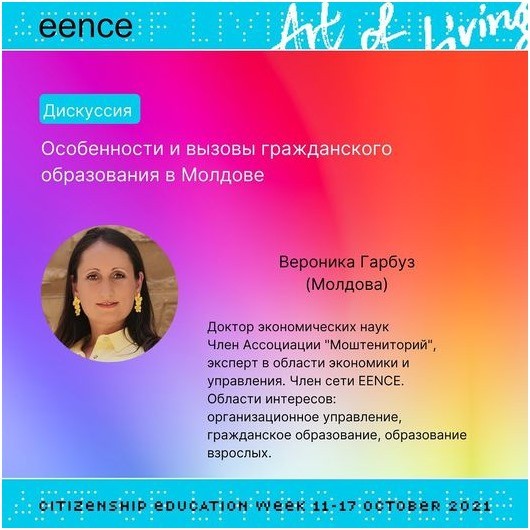
During the constructive discussions, the emphasis was on:
– conceptualization of civic education in the Republic of Moldova;
– the main challenges of civic education in the context of the COVID-19 pandemic;
– the main providers of civic education;
– the main projects implemented in the field of civic education;
– prospects for the development of civic education in the Republic Of Moldova.
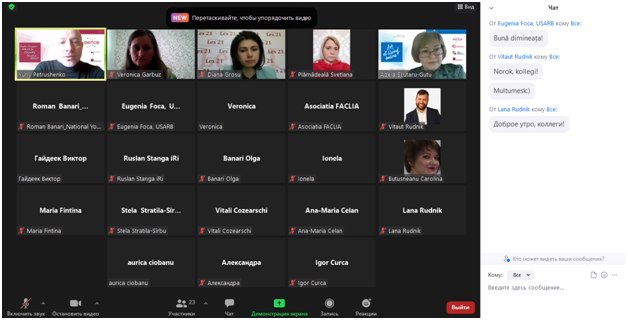
The invited experts are of the opinion that we are living in a period in which it is necessary to train citizens involved in social and political life. The aim is not only to ensure that the values of democracy will prosper, but also to encourage social cohesion in the conditions of increasing social and cultural diversity.
At the same time, it was emphasized that although there are several efforts in the field of civic education at the national level, they are not systemic. Moreover, civic education in schools is treated as an optional discipline, teachers do not have the proper training.
At community level there is an acute need to invest in the participation of citizens in community life, public decision-making and in processes that give them a sense of power in relation to decision-makers.
At the end of the panel discussion, it was concluded that in order to achieve important results in the field of civic activism, the SYNERGY EFFECT, obtained through working with community actors, which will bring added value to the efforts made, is needed.
The discussion “Resilience Measures to Save and Create Jobs in the Context of the COVID – 19 Pandemic: Challenges for Civic Education Providers”, was moderated by Liliana Postan, PhD, trainer, member of the Working Group of the CSF VP No. 5 “Social and labor policy and social dialogue”.
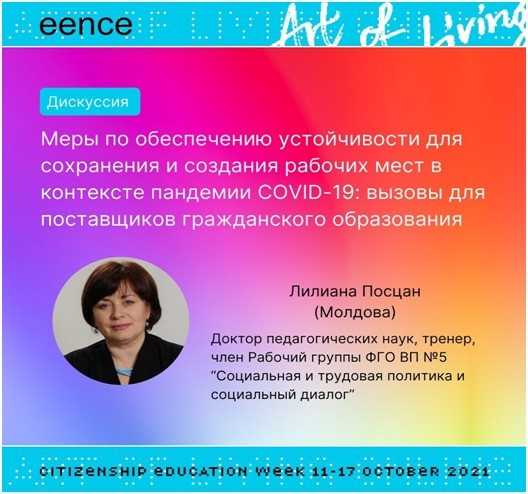
The main topics addressed were:
– identification of the impact of the COVID-19 pandemic on the labor market: layoffs, migrations, re-profiling;
– analysis of positive and negative effects;
– comparison of the practice of the Republic of Moldova in the field of employment with the practice of employment in other countries;
– challenges for civic education providers.
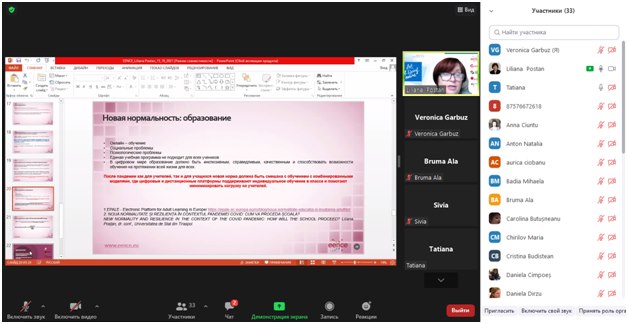
The discussion was attended by 32 people from Moldova, Ukraine, Belarus and Russia.
The results of the study on “Mapping civil society organizations in the security and defense sector of the Republic Of Moldova”, presented by Elena Marzac, executive Director of the information and Documentation Center on NATO in the Republic of Moldova, highlighted the role of civil society organizations in the security and defense sector.
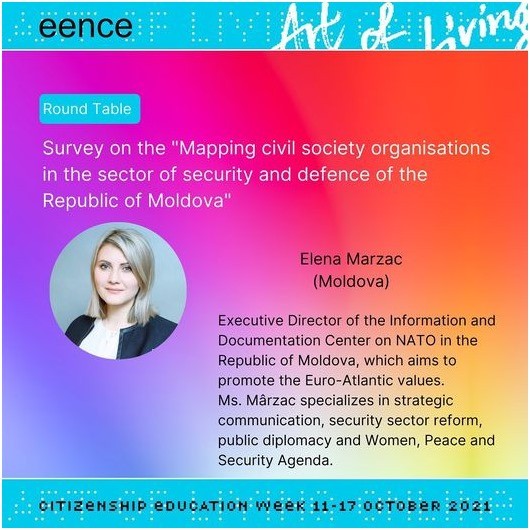
Also, the following results were presented:
– research and analysis of the concept of civil society; quantitative and qualitative analysis of active civil society organizations in the national security sector and related ones;
– evaluation of civil society in the national security sector of the Republic Of Moldova in the light of its impact on public policies;
– highlighting the contribution of civil society to the; the identification of the main trends and challenges in the development of civil society in the framework of the security sector;
– the development of conclusions and recommendations on how to strengthen the role of civil society in the field of national security, non-governmental organizations, the media, public institutions, development partners and donors involved in this area.
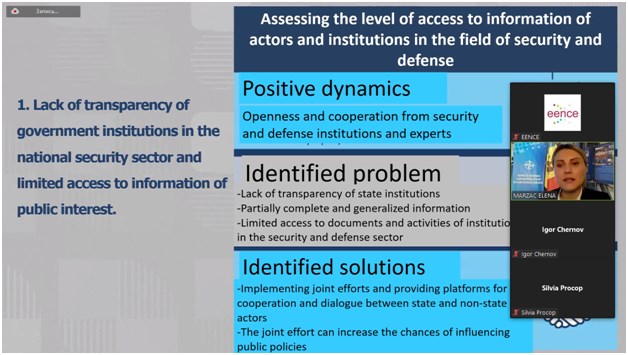
The seminar “Identification of “difficult participants” and effective use of interaction techniques”, conducted by Vasile Garbuz, expert in psychology and organizational management, aroused the curiosity of the participants.
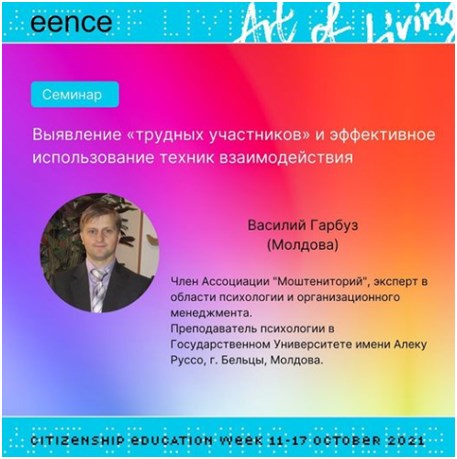
The seminar was interactive and interesting. The 31 participants from Moldova, Georgia and Belarus mentioned that in their work as a trainer / teacher they often meet with “difficult people”, and the techniques learned will be of great use to them.
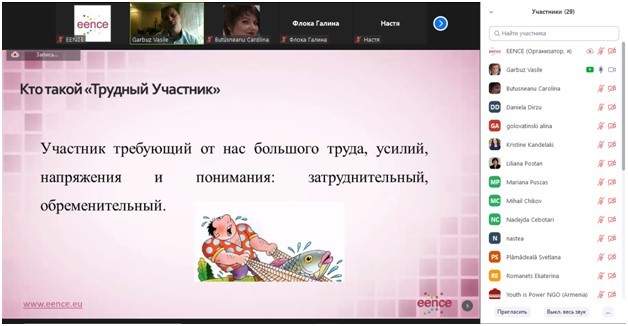
The final conclusion of the seminar was : “Difficult people may be present in the working groups, but in order to successfully manage the different difficult situations and react correctly to the different attitudes and behaviors of the tough participants you meet, one thing you have to take into account is never to take something personal”.
At the end of the day, the spirits were ignited by the seminar “Flash mob as a form of civic education”, led by the trainer Eugenia Foca.
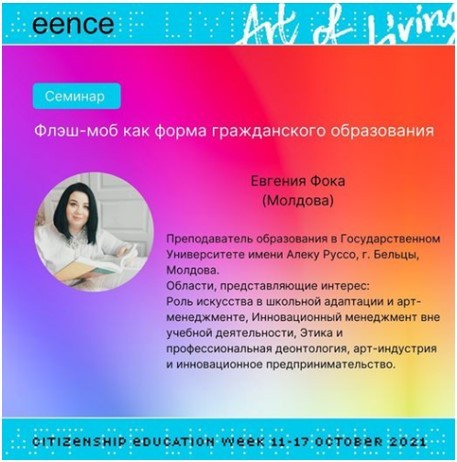
The participants discovered the flash mob technique as a method of expressing opinion and civic position. They were surprised that the flash-mob can be deployed both offline and online.
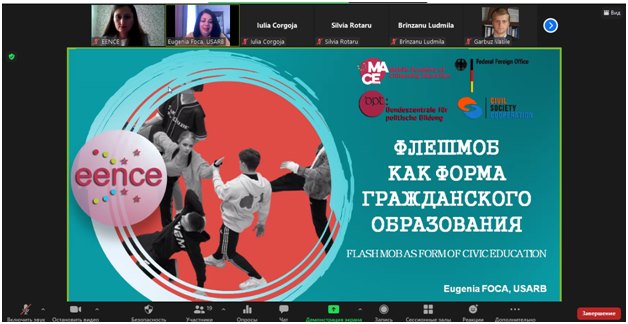
Some examples of online flash mobs during the pandemic period were presented.
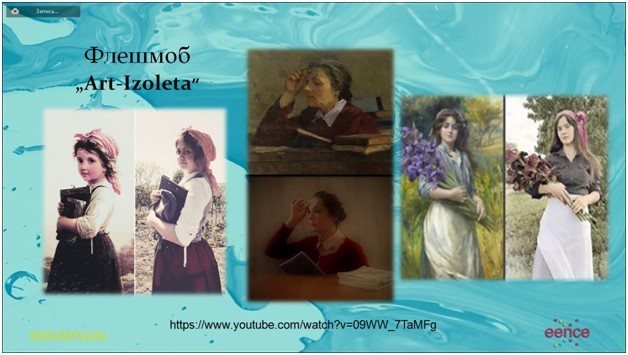
EENCE Citizenship Education Week “Art of living online” will be held from 11-17 of October, 2021.
7 days, 7 countries and 111 events, activities both online and offline.
THE GOAL of the Week is to build a loyal attitude towards Citizenship Education providers through demonstrating their potential and popularizing the best Citizenship Education practices in the region.
The Citizenship Education Week is organized by a consortium of organizations and experts from the East European Network of Citizenship Education (EENCE).
The events of the Week are supported by the Federal Agency for Civic Education (Bundeszentrale für politische Bildung) and the Ministry of Foreign Affairs of Germany.

